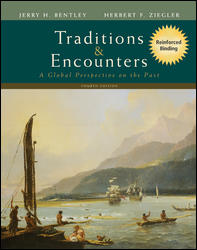1 A) the process of desiccation forced Paleolithic human groups to migrate from the Sahara to the valley of the Nile. B) the Egyptians depended on the Nile for drinking water. C) the reliable rhythm of the Nile created fertile land, which supported a remarkably productive agricultural economy. D) Egyptian myth had their people emerging out of the river. E) All of answers are correct. 2 A) getting colder and wetter. B) getting colder and drier. C) getting hotter and wetter. D) getting hotter and drier. E) getting rainier. 3 A) By worldwide standards it is a relatively short river. B) It is unusual in that it is navigable throughout its length. C) It used to flood very predictably. D) It flows from north to south. E) None of the answers are correct. 4 A) had to rely on rainfall. B) required extensive preparation of the soil. C) relied on a floodplain. D) was not an important factor in their economy. E) None of the answers are correct. 5 A) Menes. B) Hatshepsut. C) Ta-Seti. D) Khufu. E) None of the answers are correct. 6 A) were built during the Old Kingdom. B) served as royal tombs. C) are testimony to the power of the pharaoh. D) stand at Giza. E) All of the answers are correct. 7 A) the ruling elites perceived a need for demonstrating their power and wealth. B) Egyptians believed in an afterlife. C) the pharaohs tried to solve the problems of population pressure and unemployment. D) the pharaohs had slaves who could perform all these tasks. E) All of the answers are correct. 8 A) Khufu. B) Menes. C) Horus. D) Tuthmosis III. E) Akhenaten. 9 A) the Middle Kingdom began. B) the Egyptians started using iron. C) the Nubians rose up and pushed them out. D) the Egyptians adopted horses and chariots in their military. E) All of the answers are correct. 10 A) conquered Egypt. B) established a capital at Napata. C) claimed the title of pharaoh. D) warred with the Assyrians. E) All of the answers are correct. 11 A) Meroë B) Tanis C) Heliopolis D) Thebes E) Memphis 12 A) was very egalitarian. B) did not include slaves. C) was patriarchal. D) saw many more women rulers. E) All of the answers are correct. 13 A) were slower to develop metallurgy than Mesopotamia was. B) learned iron metallurgy from sub-Saharan African cultures. C) developed systems of water transport like the sailboat. D) produced fine linen textiles. E) All of the answers are correct. 14 A) It has not been translated yet. B) Most writing was done on clay tablets. C) It was unintelligible to the Nubians. D) It included hieroglyphic, hieratic, demotic, and Coptic scripts. E) None of the answers are correct. 15 A) Osiris. B) Amon. C) Aten. D) Sepiumeker. E) Re. 16 A) Nubians did not build pyramids. B) Nubians did not recognize Egyptian sun gods. C) Nubians did not mummify their dead. D) Nubians did not have priests. E) All of the answers are correct. 17 A) spoke a language in the Niger-Congo family. B) settled mostly on the banks of rivers. C) came from what is now Nigeria. D) cultivated yams and palm oils. E) All of the answers are correct. 18 A) their suddenness suggested displacement by hunting/gathering people. B) they placed pressure on the forest dwellers by moving inland. C) they never migrated south of the equator. D) they gave up living along rivers for moving inland. E) All of the answers are correct. 19 A) was learned by the Africans from the Hittites. B) eventually was displaced by bronze metallurgy. C) never spread south of the Sahara. D) helped the Bantu expand their agricultural land. E) None of the answers are correct. 20 A) cultivation of yams, oil palms, and sorghum B) herding sheep, cattle, pigs C) age sets and initiation rites D) monotheistic religions E) All of the answers are correct





